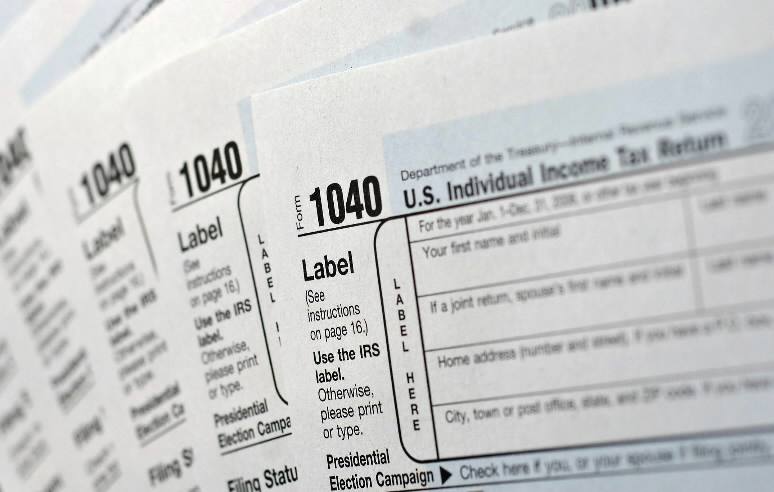*Updated 10:01 am, ET, Jan. 16. 2019.*
Tax refunds may not be going out on time after all.
As the government shutdown approaches a full month—it’s already the longest in history—more doubt is creeping in as to whether a reduced staff at the IRS will be able to process returns and issue refunds in a timely manner. What’s more, as this is being written, there’s no end in sight to the stalemate.
When the IRS announced that tax filing season would kick off on January 28, it also stated that the shutdown wouldn’t delay tax refunds due to early filers. “We are committed to ensuring that taxpayers receive their refunds notwithstanding the government shutdown,” said IRS commissioner Chuck Rettig. The proclamation was made in accordance with directives from the White House.
At the time, the IRS was operating with only about 10,000 employees, or roughly 12% of its usual staff. In a new contingency plan released on January 15, the IRS said that it was calling back more workers, increasing its staff to about 46,000 employees, or a total of 57% of its workforce. The additional employers getting the call will be working without pay, so their motivation may be suspect.
Yet some observers are commenting that even this increase is “too little, too late” to enable the IRS to meet its commitments. The agency was already operating on a tight budget amidst controversy in recent years over alleged improprieties. It will have to quickly get employees up to speed to handle the expected crush once returns start flooding in at the end of the month.
To further complicate matters, this is the first year that many provisions in the Tax Cuts and Jobs Act (TCJA) take effect. Under the TCJA, personal exemptions are eliminated, the standard deduction is doubled and numerous deductions are modified, among other significant changes. It was already going to be a challenging tax filing season and the shutdown only adds fuel to the fire.
“It’s the biggest tax reform change in 30 years. There are going to be many, many millions more questions that are asked. You’ve got a shutdown. You’ve got fewer employees,” said Tony Reardon, president of the National Treasury Employees Union that represents IRS employees, as quoted in an article in the Los Angeles Times. “To me, that is all a big brew that spells potential trouble.”
Don’t expect taxpayers to remain patient. During the first week of filing last year—spanning January 29, 2018 through February 3, 2018— the IRS accepted about 18.3 million returns and issued 6.2 million refunds. The IRS says that the average refund, based on 2017 returns, is $2,895.
Finally, other services at the IRS will be affected by the crackdown, notably the level of assistance offered to both taxpayers and practitioners. With fewer experienced workers on hand, there are obviously fewer staffers to answer call-ins and provide information. This is expected to lead to a big jump in filing extension requests for the 2018 tax year.
=Original article appears below.=
Despite the shutdown of the federal government, which has now dragged into its third week, the IRS expects to kick off the tax filing season on Monday, January 28.
It will begin accepting both electronic and payer returns on that day.
The announcement was made on January 7 in accordance with directives from the White House (IR-2019-01, 1/7/19).
Traditionally, the IRS hasn’t issued tax refunds when the government is shut down, as evidenced by refund delays during an extended period in 2013. This has caused concern among many early filers who want to get their hands on the tax money as soon as possible. But the IRS has assured taxpayers that it will be conducting business as usual no matter how long the stalemate lasts.
“We are committed to ensuring that taxpayers receive their refunds notwithstanding the government shutdown,” said IRS commissioner Chuck Rettig in a press release. “I appreciate the hard work of the employees and their commitment to the taxpayers during this period.”
Currently, the IRS is working with only about 12% of the staff it usually employs.
What’s more, resources were already stretched then due to a limited budget. The IRS has yet to announce ant additional contingency plans for the shutdown or explained how it will meet its objectives. It has, however, stated that it will be recalling a big part of its workforce.
To further complicate matters, the 2018 returns that are to be filed by individual taxpayers this year include numerous changes implemented by the Tax Cuts and Jobs Act (TCJA). Among other significant provisions, the TCJA lowers tax rates, eliminates personal exemptions and modifies certain deductions. This is expected to place an even greater strain on the system.
“IRS employees have been hard at work over the past year to implement the biggest tax law changes the nation has seen in more than 30 years,” noted Rettig.
The filing deadline for 2018 tax returns remains Monday, April 15, 2019 for most taxpayers. Due to local holidays, taxpayers who live in Maine or Massachusetts have until April 17, 2019 to file their returns.
Software companies and tax professionals can start accepting and preparing tax returns before January 28 and then submit the returns when the IRS systems open later this month. The IRS is urging taxpayers to file their tax returns electronically to minimize errors and provide faster refunds.
Thanks for reading CPA Practice Advisor!
Subscribe Already registered? Log In
Need more information? Read the FAQs




